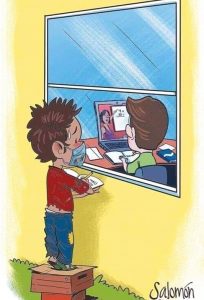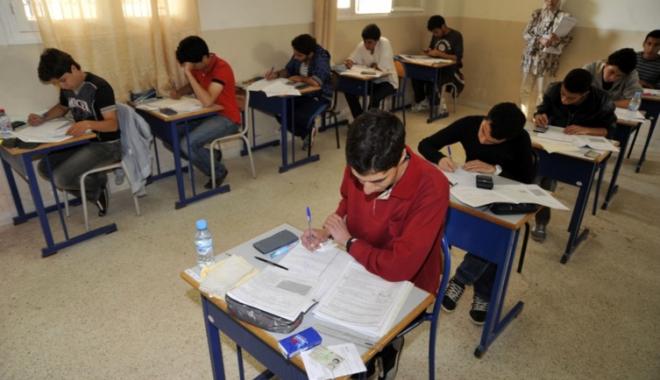Is the Moroccan educational system ready for e-learning/distance learning?

One may find it absurd to try to answer such a question. It is quite obvious that in these times of uncertainty and unprecedented widespread pandemic that the world is bound to change forever. As the new reality of living indoors dawned on the country, a decision was made in Morocco that all public and private services would be suspended, including schools in the education sector. On the 13th of March, the Moroccan Ministry of Education announced the suspension of in-classroom schooling and substituted it with the novel distance learning, a decision that started taking effect on Monday the 16th of March.
The communiqué issued by the Ministry of National Education, vocational training, higher education, and scientific research stated that new measures are going to be taken to ensure a solid form of pedagogical continuity is maintained. The measures included a set of ministry websites, an allocation of TV channels to broadcast video lessons, and recently the introduction of virtual classrooms through Microsoft Teams platform. While all these measures might seem reasonable, but if applied in a country where abject poverty represents more than 45%, according to the World Bank (more than 54% in rural areas), the measures will seem rather incredulous. On the one hand, most families in urban centers lack reliable access to the Internet, and only a lucky few middle-class families can afford the monthly data package subscription. Even these families are suffering because most have more than two children and only one family computer makes it rather difficult to manage the learning time without straining the device. Let alone shedding light on people living in rural areas, who lack basic access to modern life utilities, including essential infrastructure, electricity, clean water sources, and who are as such basically excluded right from the start.
Another aspect at play here is that those who are supposed to conduct distance learning sessions, teachers, are neither well-equipped with electronic devices and reliable Internet access, nor savvy enough with distance learning software and online teaching pedagogy. Adding insult to injury, professional development chances, which might have mitigated teachers’ lack of training, are scarce for teachers that are already juggling an array of onus at schools.
Students, too, are bewildered by the hasty decisions that the Ministry of Education is making since most of them are not used to this new form of learning. Most of them would agree that a sense of autonomy is not what the Moroccan educational system fosters, rather the opposite. The centrality of the teacher at the zenith of the educational pyramid has been emphasized more than ever in the country as private coaching centers expanded immensely in recent years, and the demand for private tutors has never been higher. A culture of dependence has plagued the kingdom, one that favors grades/achievement over the spirit of education. This, alas, is due to the nature of the assessment scheme employed in our national education system. Knowledge regurgitation based exams are still prominent whilst project-based and alternative assessments are shied from.
Considering all, distance learning, in my view, is creating unjust inequalities among Moroccan students since it denies a large portion of them the access to education solely based on the economic status of their families. In a time of crisis, if we fail the present; the future shall suffer for sure.




